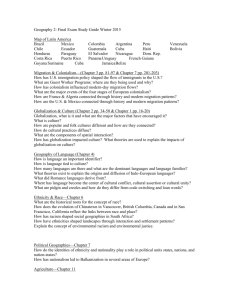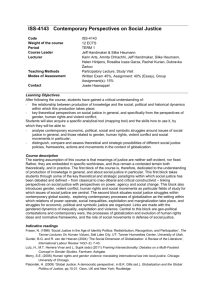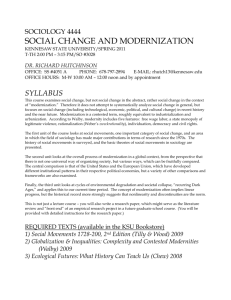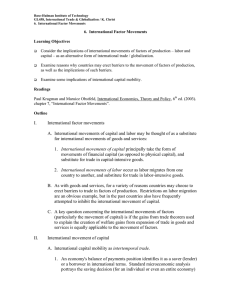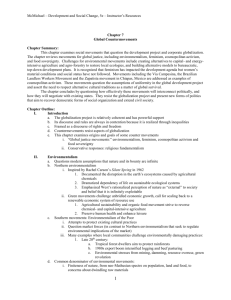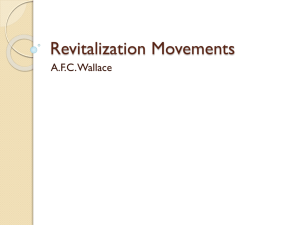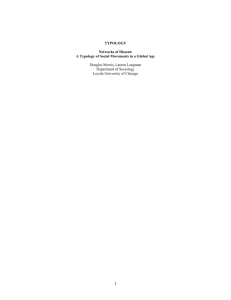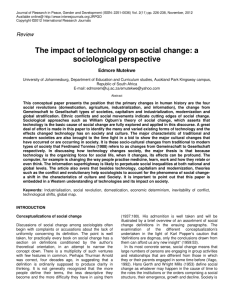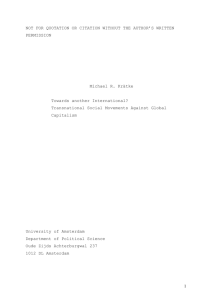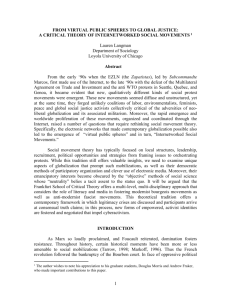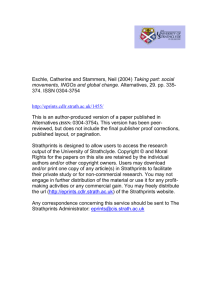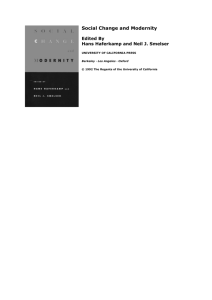Anthro THEMES
advertisement
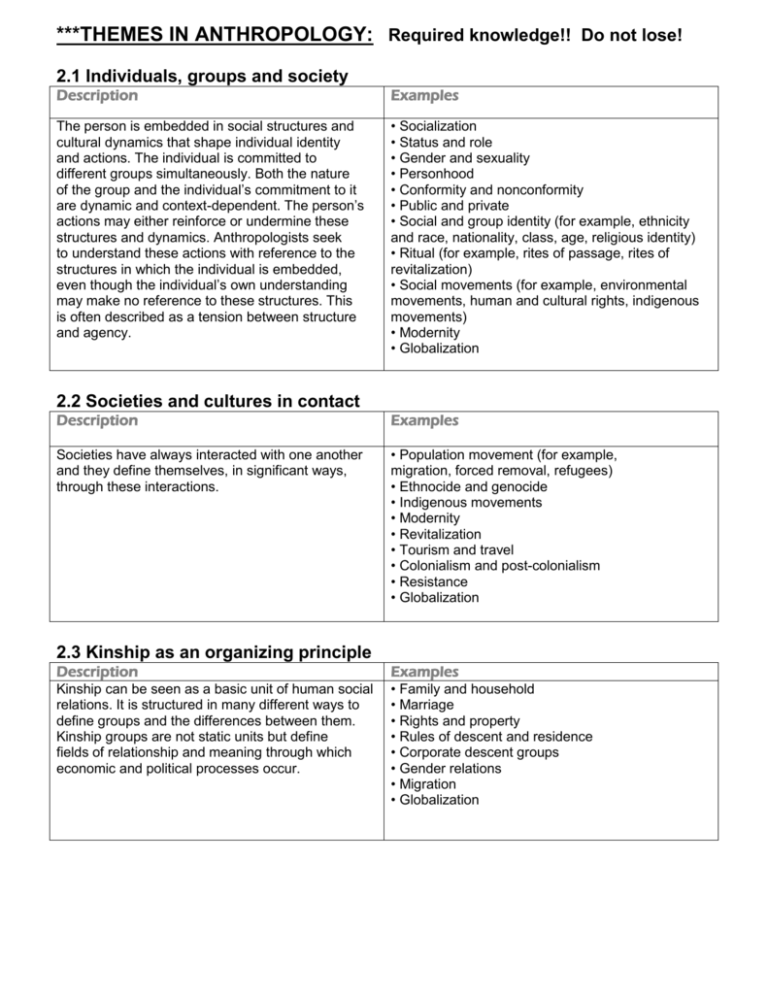
***THEMES IN ANTHROPOLOGY: Required knowledge!! Do not lose! 2.1 Individuals, groups and society Description Examples The person is embedded in social structures and cultural dynamics that shape individual identity and actions. The individual is committed to different groups simultaneously. Both the nature of the group and the individual’s commitment to it are dynamic and context-dependent. The person’s actions may either reinforce or undermine these structures and dynamics. Anthropologists seek to understand these actions with reference to the structures in which the individual is embedded, even though the individual’s own understanding may make no reference to these structures. This is often described as a tension between structure and agency. • Socialization • Status and role • Gender and sexuality • Personhood • Conformity and nonconformity • Public and private • Social and group identity (for example, ethnicity and race, nationality, class, age, religious identity) • Ritual (for example, rites of passage, rites of revitalization) • Social movements (for example, environmental movements, human and cultural rights, indigenous movements) • Modernity • Globalization 2.2 Societies and cultures in contact Description Examples Societies have always interacted with one another and they define themselves, in significant ways, through these interactions. • Population movement (for example, migration, forced removal, refugees) • Ethnocide and genocide • Indigenous movements • Modernity • Revitalization • Tourism and travel • Colonialism and post-colonialism • Resistance • Globalization 2.3 Kinship as an organizing principle Description Examples Kinship can be seen as a basic unit of human social relations. It is structured in many different ways to define groups and the differences between them. Kinship groups are not static units but define fields of relationship and meaning through which economic and political processes occur. • Family and household • Marriage • Rights and property • Rules of descent and residence • Corporate descent groups • Gender relations • Migration • Globalization 2.4 Political organization Description Examples Political organization takes many forms, but all have the common element of ordering internal and external relations. • Power, authority and leadership • Formal and informal political systems (for example, egalitarian, rank, stratified, state, global) • Social control and legal systems • Inequality (for example, class, caste, ethnicity, age, gender, health and illness) • Social organization of space and place • Status and role • Conflict and resistance • Ideology • Nation building • Colonialism and post-colonialism • Social movements • Globalization 2.5 Economic organization and the environment Description Examples Societies interact with and transform the environment in the production, allocation and consumption of material and symbolic goods. • Division of labor • Space and place • Systems of production and consumption (for example, subsistence, peasant, industrial, transnational) • Exchange systems (for example, reciprocity, redistribution, market) • Scale (for example, local, global) • Environmentalist movements • Social views of the environment • Development (applied anthropology, for example, advocacy, medical) • Industrialization and proletarianization • Urbanization • Commodification • Colonialism and post-colonialism • Globalization 2.6 Systems of knowledge Description Examples Systems of knowledge are ways of organizing and comprehending social and natural environments. • Symbolism • Arts and expression • Classification systems • Relationships with the environment • Interaction, media and communication 2.7 Belief systems and practices Description Examples This element focuses on beliefs and ideologies both sacred and secular. • Religion • Religious movements • Myths • Rituals • Witchcraft, magic, sorcery and divination • Conversion and syncretism 2.8 Moral systems Description Examples By enabling and constraining behavior, moral systems regulate the life of the individual in society. • Ethics • Justice • Taboos • Suffering • Good and evil • Purity and impurity • Honor and shame • Globalization


